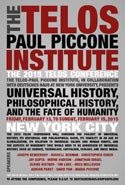 Anyone familiar with Étienne Gilson’s teachings knows he is celebrated for: being a Thomist, his criticism of “essentialism” in philosophy, emphasizing St. Thomas’s revolutionary focus upon the principle of the act of existence (esse) within the natures of things, and a shift away from ideas to existential judgments within Western philosophical thought. Odd, then, are two claims related to Gilson made by people who knew him well. The first, from Gilson’s biographer Lawrence K. Shook, says of Gilson, “An Erasmian humanist at heart, he wanted to end all wars and to liberate men to work out their salvation in the context of personal freedom. He believed that this could be achieved through the kind of education that fostered the acquisitions of moral virtues through the writings of Cicero and Seneca.”
Anyone familiar with Étienne Gilson’s teachings knows he is celebrated for: being a Thomist, his criticism of “essentialism” in philosophy, emphasizing St. Thomas’s revolutionary focus upon the principle of the act of existence (esse) within the natures of things, and a shift away from ideas to existential judgments within Western philosophical thought. Odd, then, are two claims related to Gilson made by people who knew him well. The first, from Gilson’s biographer Lawrence K. Shook, says of Gilson, “An Erasmian humanist at heart, he wanted to end all wars and to liberate men to work out their salvation in the context of personal freedom. He believed that this could be achieved through the kind of education that fostered the acquisitions of moral virtues through the writings of Cicero and Seneca.”
|
|
||||
|
Telos Press Publishing · PO Box 811 · Candor, NY 13743 · Phone: 212-228-6479 Privacy Policy · Data Protection Copyright © 2024 Telos Press Publishing · All Rights Reserved |
||||







